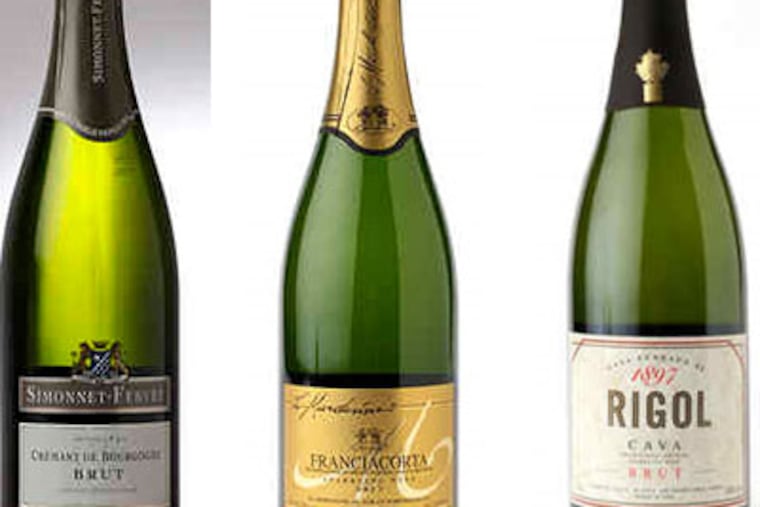Champagne defined
Buzz: Hey Marnie, what's the deal with all the fake wine out there? Marnie: I have no clue, Buzz. I've never heard of such a thing.

Buzz: Hey Marnie, what's the deal with all the fake wine out there?
Marnie: I have no clue, Buzz. I've never heard of such a thing.
Buzz: Well, they had stacks of the stuff at the store yesterday. When I asked a clerk where they kept the champagne, he showed me a shelf of hoity-toity French stuff for $40 a bottle. I said that was too pricey for me, and was going to grab a cheaper one, but he said it wasn't "real" champagne.
You'd think the labels would say "artificial wine," but I couldn't even find a list of ingredients.
Marnie: Ah, I see. The trouble is that when most people say "champagne," they mean any wine with bubbles. Technically, the term "champagne" only refers to sparkling wines made in the Champagne region of France.
These were the world's original sparkling wines and remain the most respected and the most expensive. What the clerk meant was that the other wines weren't true champagnes, not that they weren't real wines. All wines are made with grapes, so they don't have to list ingredients.
Buzz: Maybe they should call the others "Sham-pagne" then.
Marnie: I don't know how well that would go over with customers, Buzz. Sparkling wine is the proper term for any wine with carbonation. All French champagnes are sparkling wines, but not all sparkling wines are champagnes. There are all sorts of other options, like Spanish Cavas and Italian Proseccos, not to mention American sparkling wines and even some Moscatos.
Buzz: Do they sell lots of fake champagnes?
Marnie: Yes, and in fact many people even like them better.
Take Prosecco for instance. Champagnes are richer and toastier in flavor, but for parties and toasts, the lighter, fruitier taste of Prosecco is a real crowd-pleaser.
Prosecco wines are younger and fresher-tasting, with more overt apple-pear flavors. Most feature a faint whisper of pleasing sweetness. Compared to the more complex taste of aged champagnes, vibrant Proseccos have wider appeal, especially to people who don't normally drink wine.
Buzz: Sounds like this fake is the real thing.